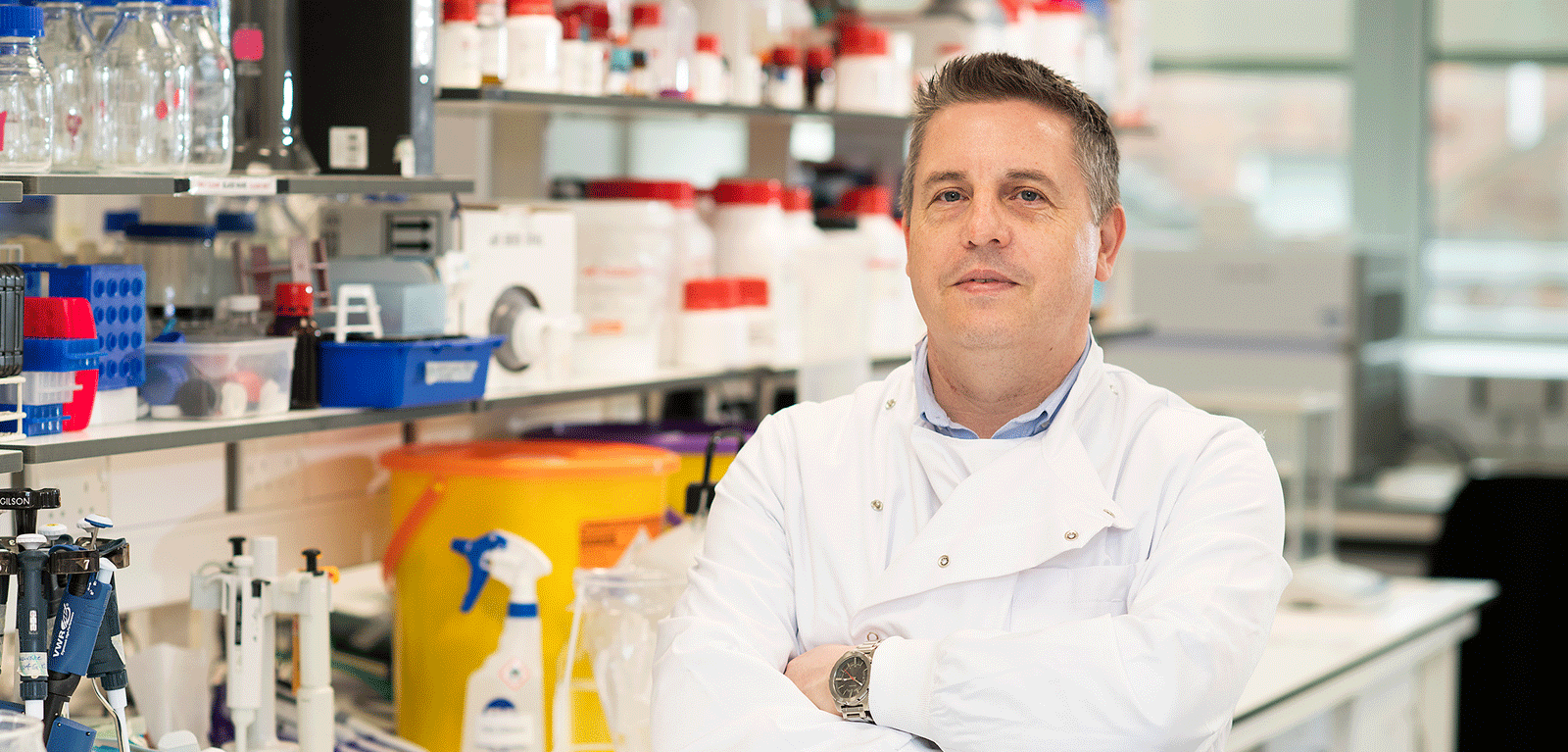New drug could help prevent sight loss in people with diabetes
A study, led by Queen’s University and funded by Diabetes UK, suggests that a new drug treatment could help protect people with diabetes from sight loss.

Targeting early damage to the eye before it becomes irreversible, the treatment offers a potential new way to slow or even prevent vision loss in people living with diabetes.
The research results have been published in Diabetologia (the journal of the European Association for the Study of Diabetes [EASD]), one of the world’s leading journals for diabetes.
The study was led by Professor Tim Curtis and Dr Josy Augustine from the Wellcome-Wolfson Institute for Experimental Medicine at Queen’s University Belfast and involved a team of researchers from King’s College London, the Medway School of Pharmacy, and the Medical University of South Carolina.
Diabetic retinal disease is a common cause of vision loss in adults of working age. It happens when high blood sugar damages the blood vessels and nerve cells in the retina, the part of the eye that detects light. Without treatment, this can lead to serious sight problems and, in some cases, blindness.
Professor Tim Curtis, Chair of Vascular Physiology from the Wellcome-Wolfson Institute for Experimental Medicine at Queen’s University Belfast, explains: “Diabetic retinal disease often begins without symptoms, with early damage to the retina’s nerve cells and blood vessels happening long before people notice any problems with their vision.”
“Current treatments tend to target the later stages of the disease, when significant and often irreversible damage has already occurred. With this study, we wanted to explore whether early drug intervention could stop the disease in its tracks before it leads to serious sight loss.”
Using a rat model of diabetes, the team tested a drug called 2-HDP and found that it protected the retina’s nerve cells and blood vessels, reduced inflammation, and helped preserve visual function. The drug works by neutralising harmful molecules that accumulate in the retina during diabetes and contribute to sight loss.
To support the importance of these findings to humans, the team also looked at retinal tissue from people with diabetes and found the presence of the same toxic molecules targeted by 2-HDP. This suggests that the drug may have the potential to target these damaging molecules in people as well.
Dr Josy Augustine, Research Fellow from the Wellcome-Wolfson Institute for Experimental Medicine at Queen’s University Belfast comments: “Our study reveals a potential new treatment to protect vision in people with diabetes by tackling early damage in the retina before it becomes permanent. This could lead to a new generation of drugs aimed at reducing visual impairment and enhancing quality of life for millions of people worldwide.”
Computer simulations also showed that the drug can easily enter cells within the body, raising the possibility of developing tablet-based treatments in the future.
Professor Curtis concludes: “This breakthrough highlights the importance of early intervention in diabetic retinal disease and the pressing need for new, targeted treatments that can protect vision before lasting damage occurs.”
Mikayla Hu, Research Communications Officer at Diabetes UK, which funded the study, says: “Vision problems and sight loss are devastating for people with diabetes, and current treatments don’t tackle retinal changes soon enough.
“We’re proud to have supported this study, which suggests the potential of a new treatment to clear out harmful substances in the retina – and intervene to protect people’s vision much earlier than is currently possible. We look forward to seeing how this early-stage research progresses and moves us closer to a treatment that could benefit people living with diabetes.”
Collaborators on the research included Dr Evan Troendle and Professor Martin Ulmschneider from King’s College London, and Professor Timothy Lyons from the Medical University of South Carolina and Diabetes Free South Carolina.
Media
Media inquiries to Sian Devlin at s.devlin@qqub.ac.uk